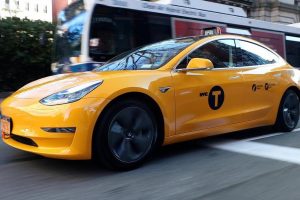- 🌉 The collapse of the Francis Scott Key Bridge near the Port of Baltimore poses significant risks to the logistics processes of car companies.
- 🚢 The Port of Baltimore, a crucial hub for automotive imports and exports, faces closure following the bridge collapse, impacting vehicle shipments.
- 📉 Tesla, like other automakers, will be affected by the bridge collapse, potentially disrupting its supply chain and vehicle deliveries.
- 🛣️ Shifting goods to alternative ports is the primary strategy to mitigate the crisis, with speculation about redirecting automotive deliveries to ports like Philadelphia or Wilmington.
- 🔄 Tesla could leverage Gigafactory Shanghai for Model 3 exports and explore shipping routes from the West Coast to China, then to Europe, as an alternative solution.
The collapse of the Francis Scott Key Bridge near the Port of Baltimore has sent ripples of concern throughout the automotive industry. This critical infrastructure failure not only threatens the smooth operations of logistics processes but also raises questions about the resilience of supply chains in the face of unexpected events.
Understanding the Significance
The Port of Baltimore stands as a pivotal point in the automotive supply chain, serving as a gateway for imports and exports. Its strategic location and efficient handling processes have made it a preferred choice for many car manufacturers. However, the collapse of the Key Bridge has put a spotlight on the vulnerabilities inherent in relying on a single point of entry or exit.
Assessing the Impact
- Disruption in Shipments: With the closure of the Port of Baltimore imminent, automotive shipments are set to face significant delays. This disruption could have far-reaching consequences for both manufacturers and consumers, leading to potential inventory shortages and delivery delays.
- Tesla’s Dilemma: As a major player in the automotive industry, Tesla is not immune to the effects of the bridge collapse. The company, known for its agile supply chain management, now faces the challenge of rerouting shipments and ensuring minimal disruption to its operations.
Strategies for Resilience
- Exploring Alternative Ports: One of the immediate responses to the crisis is to divert shipments to alternative ports. Ports such as Philadelphia or Wilmington could serve as temporary solutions to mitigate the impact of the Key Bridge collapse.
- Global Supply Chain Integration: Tesla’s ability to leverage its manufacturing facilities in different parts of the world showcases the importance of a well-integrated global supply chain. By tapping into resources like Gigafactory Shanghai, Tesla can adapt to disruptions more effectively.
Looking Ahead
While the Key Bridge collapse highlights the fragility of existing infrastructure, it also underscores the need for proactive measures to enhance resilience. Investing in infrastructure upgrades, diversifying transportation routes, and fostering collaboration between stakeholders are essential steps in building a more robust automotive logistics network.





